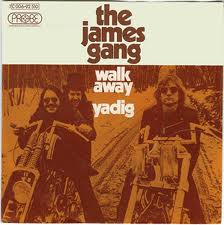
On February 23, 2011, officers in Houston County were on the lookout for an African American male wearing dark clothing who had allegedly stolen a motorcycle in the area. An officer spotted Walker, dressed in a blue sweatshirt and “very light-colored pants” on the grounds of a local elementary school. Walker was directed to remove his hands from the sweatshirt pocket. He told the officer that he was just trying to get home and then began to run away. As the officer gave chase, Walker threw down a pill bottle containing cocaine and a crack pipe. After a jury trial, Walker was convicted of possession of cocaine with the intent to distribute.
On appeal, Walker contended that he was subjected to unlawful detention. The Court of Appeals agreed, holding that under the seminal Terry v. Ohio and its line of cases, the officer was free to conduct a first-tier encounter whereby he could attempt to question Walker. Likewise, Walker was allowed to avoid the encounter by running away. At the hearing, the officer testified once he commanded Walker to take his hands out of his pocket, he was not free to leave. The Court stated that this order escalated the encounter into a second-tier stop, requiring a “particularized and objective basis” for suspecting criminal activity. Such an investigatory stop requires “more than a subjective, unparticularized suspicion or hunch.”
The Court noted that the officer did not have enough information to elevate his assumption that trespass on school property had occurred. There was no evidence that Walker lacked consent to be on the property or that he was not there for a legitimate reason. Furthermore, nobody testified that Walker had previously been warned to remain off the property. The State tried to argue that Walker’s flight itself created suspicion of criminal activity to effect the detention. However, Walker’s flight arose as a result of the officer’s unlawful and unconstitutional command, which was unsupported by articulable suspicion of a crime. This scenario was different from a flight that was unprovoked by illegal police conduct. Citing to a long line of case law, the Court noted that Walker’s right to avoid the first-tier encounter does not constitute obstruction where he runs from the police. See Brown v. State, 301 Ga. App. 82 (2009); Ewumi v. State, 315 Ga. App. 656, 663 (2012); State v. Jones, 303 Ga. App. 337 (2010); State v. Dukes, 279 Ga. App. 247, 251 (2006).
In Walker’s case, the exclusionary rule prevailed to prevent manifest injustice. A measure preventing evidence from being introduced that was obtained by way of an unlawful search or seizure, the rule prevents police and prosecutors from enjoying the tainted fruits of the poisonous tree that is conduct falling outside the boundaries of the Fourth Amendment. Seems to me, Walker didn’t want to talk about it. Seems to me, he just turned his head and walked away.
-authored by Eric Bernstein

